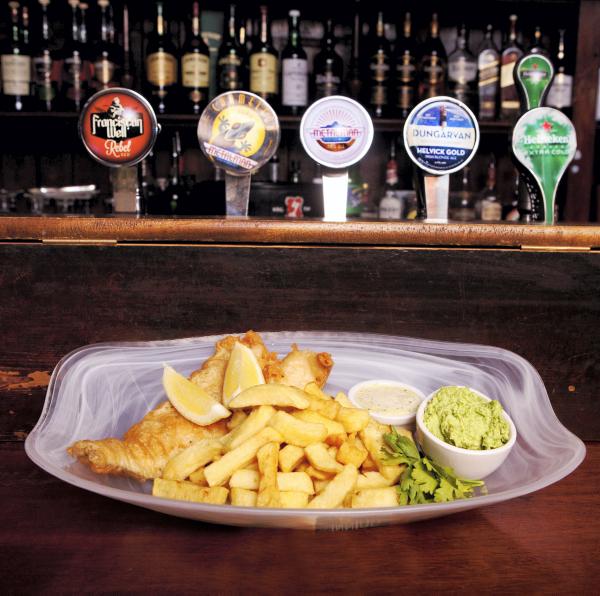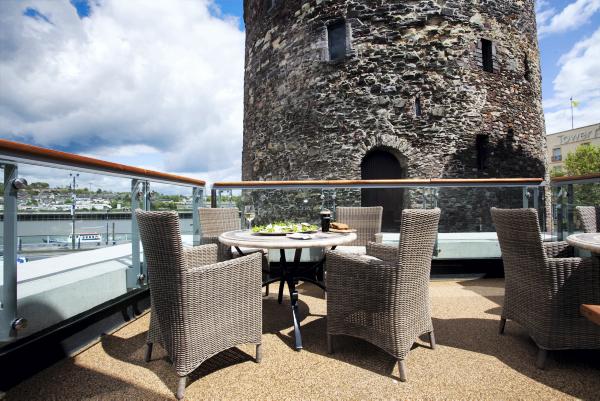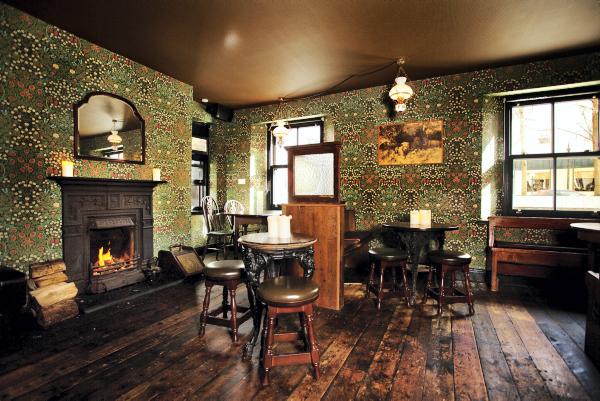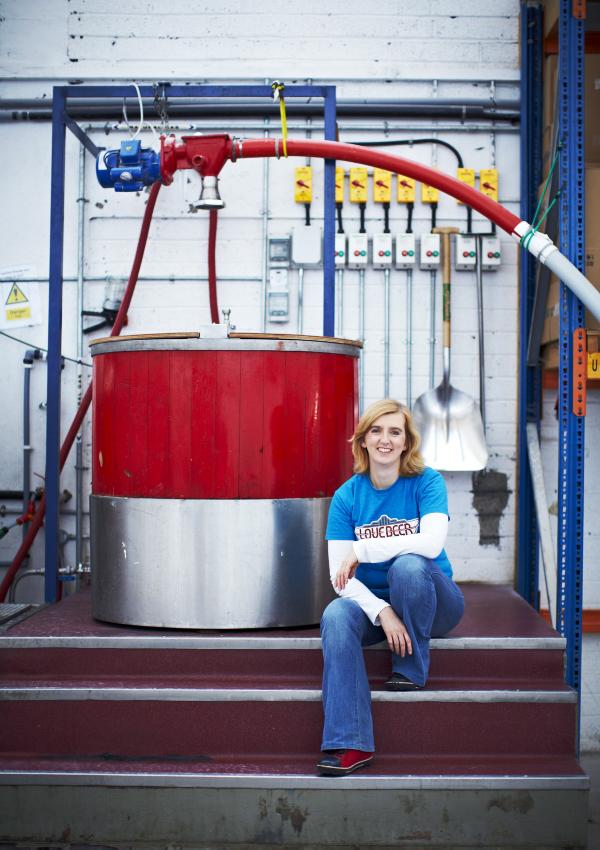The craft beer industry is in full flow in Ireland, as evidenced by the publication of a new book today (Thursday) entitled Sláinte – The Complete Guide to Irish Craft Beer and Cider. Craft beer will be very much part and parcel of Waterford Harvest Festival, particularly at the Viking Rocks Craft Beerfest, which is taking place in The Reg and Munster bars. Irish Country Living catches up with three players in the industry in the southeast.
A Day in the Life of ...
A Head Brewer
Cormac O’Dwyer
Dungarvan Brewing Company
“If there is such a thing as a typical day” is the response Country Living receives when we ask the head brewer of Dungarvan Brewing Company, Cormac O’Dwyer, to describe a typical day on the job.
“You can get one brew done in an eight-hour day, so I can work nine to five or eight to four, or a double brew on a longer day. If I’m doing a double brew, I’ll be up at 5am,” Cormac says. “It’s a 10-minute drive to the brewery and I’ll be in before half five. It’s a busier day but we get twice as much done. I try to slap everything else in between, such as orders and email.
“The way the brew days pans out, you’d be busy for the first hour. The first thing I do is heat the water and then I do the mash in. For this, I have to weigh out the malt I’m using for the beer, and the hot water is transferred to the mash ton.
“This is called the mash and it has a loose porridge consistency. At 6.30am, the mash starts. I leave it sitting at 66 degrees Celsius for 90 minutes and while I’m waiting I grab breakfast.
“Around 8am, I start sparging. This is where we drain off the liquid and put more hot liquid on top. The sugar from the malted grains is released to leave a sweet liquid called wort. That liquid is then gathered into a kettle.
“We bring the liquid up to the boil and as it boils we add the hops. The spent grain is removed and taken away by a local farmer to be fed to his cattle. The sparge is finished by 10am. At 10.30am I clean out the mash ton and weigh out the malt for the second brew.
“An hour later I’m transferring the first batch from the kettle into the fermenter [it ferments for a week] and I start mashing for the second brew.
“The fermented first batch is then put into bottles which are sealed – they get the second fermentation in the bottle. The sealed bottles are kept for two to four weeks.
“By one o’clock, the first brew is finished and I continue the same process for the second batch, which is completed by seven o’clock.
“We get plenty of comments from people saying it’s the best job in the world; we would taste the beer at various stages but it’s not like you’re sitting down for a few pints. Instead I might bring a few bottles home. And it’s not that glam when most of what you’re doing is cleaning.
“When I get home I’m kept busy with the bedtime routine for Micheál (11), Sabhdh (10), Niamh (six) and Seán (four).”
A brewer’s tale
Grainne Walsh
Metalman Brewing
Grainne Walsh and her husband, Tim Barbar, co-founders of Metalman Brewing, returned to Ireland in 2005 having lived and travelled abroad for four years. Grainne was struck by how “the beer situation in Ireland hadn’t changed in all the years we’d been away”. This observation was copperfastened by the couple’s many trips to Britain (where Tim is from). They found a much wider variety of beers in pubs there than in Ireland.
“In the UK I would never have heard of the beers at the bar,” says Grainne. “It opened my eyes to beers. You get institutionalised here.”
Grainne had been working in the IT industry for a while and felt there was something wrong in every job she worked in. When she still wasn’t happy in a job that “ticked all the boxes”, she realised the jobs weren’t the problem – it was her.
Grainne and Tim started brewing at home and Metalman Brewery was launched in 2011.
While pale ale is Metalman’s primary product, all their other beers are seasonal. At the moment, Metalman have a smoked beer made with beech-smoked malt from Germany and they’ve made a raspberry beer for Waterford Harvest Festival. Recently, the company also produced a beer with South American tea in it.
The craft beer market, by all accounts, is flourishing.
“It’s not difficult to sell craft beer,” says Grainne. “The industry was just starting to pick up as we entered it. The demand was starting to grow but there were only a few breweries [to meet it].
“It’s a great industry to be in – demand is higher than supply.”
Viking Rocks
Two bars in Waterford city – The Reg and the Munster Bar – are holding the Viking Rocks Craft Beerfest during Waterford Harvest Festival. The beer festival takes its name from the brand set up by The Reg and the Munster Bar.
“It’s all about bringing people into the Viking Triangle in the city centre,” says Donal O’Brien, general manger of The Reg pub. “It’s giving people a good reason to come into town.”
Donal says craft beer is very popular with customers. “It’s hugely popular with tourists – they are always very interested in what the local brew is, and regular customers are more and more interested in craft beers. The interest has been there in Waterford for the past two to three years. That’s hugely down to Metalman and Dungarvan. Metalman was the first in Waterford city to have a craft beer tap. The craft beer industry is very important to pubs. You need to have a strong offering of craft beer. A lot of people are asking for them.”
The Craft Beerfest itself involves entertainment and food options, and there will be 20 craft beers on tap. For anyone not into pints, there will also be a selection of craft beer cocktails.
“For us, it’s about local beers, local acts and local business,” says Donal.
Some Craft Beerfest events are ticket only. See www.thereg.ie.









SHARING OPTIONS